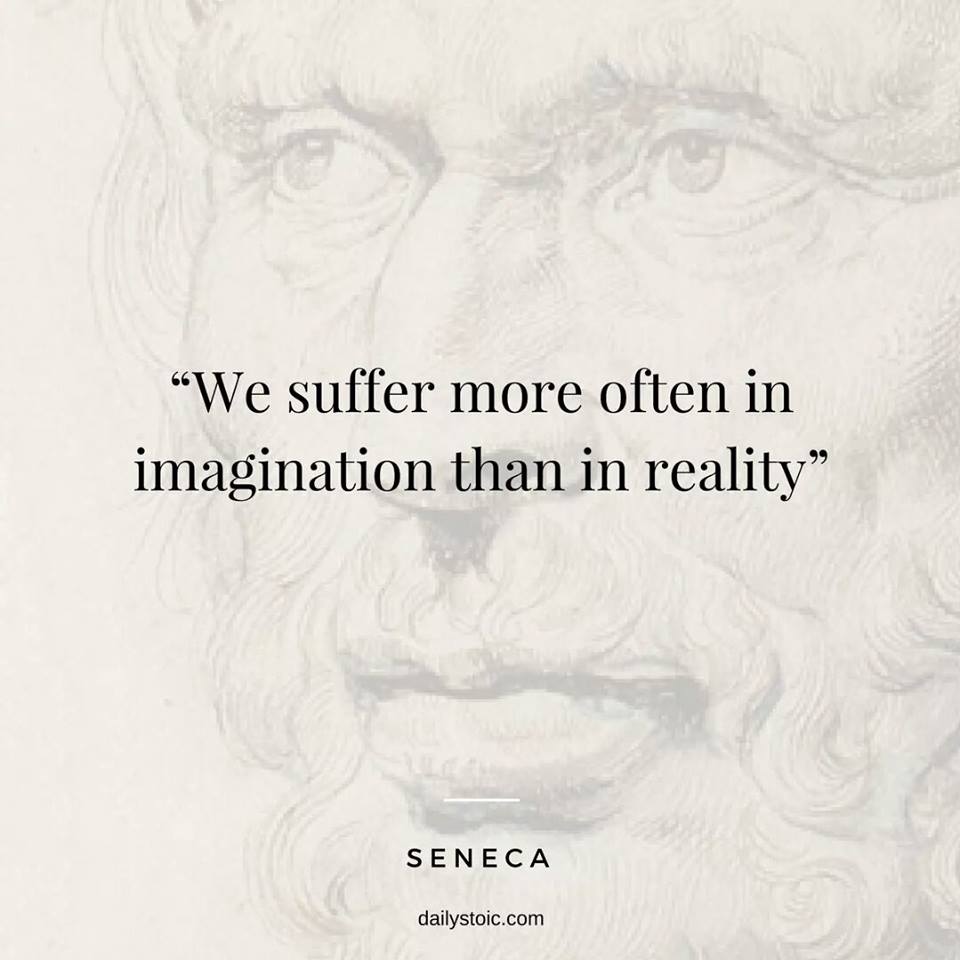Two meanings of the word “imagination.”
First, it means our emotional reactions–our pain, anger, loss, insult, embarrassment–are only imaginary.
By any measure, these emotional states are suffering because they are labeled as “negative.” Often, as part of our fight-or-flight response, our mind manifests this suffering to protect us from harm. Our reactions run the self-destructive gamut of fighting, drinking, shutting down, or running.
If we stop, breath, and then question our ego, we often find we fine, the suffering not as bad as we first thought.
Second, it means our daydreams and reveries, the places where we reply our injuries and insults.
Often, within these imaginative replays, our frustration grows, our anger seeks justice. These scenes are where our imagination reacts when life happens (insults, arguments, misunderstandings, love, etc.). During these scenes, we suffer more in our mind’s reaction than in actual life.
If we stop, breath, and then question our ego, we often find we fine, the suffering not as bad as we first thought. This is the power of mindfulness.
TL:DR
We make life harder because our imagination loves to make us suffer.
